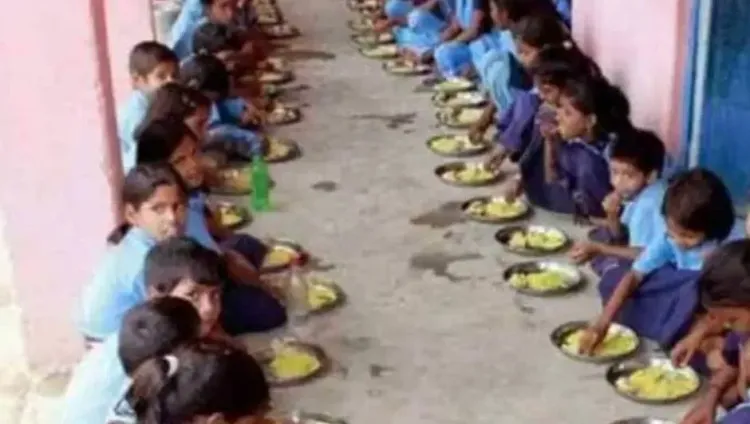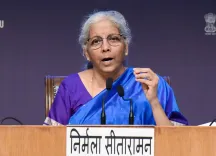How Many Children Does the PM POSHAN Scheme Cover?

Synopsis
Key Takeaways
- 11 crore children are beneficiaries of the PM POSHAN Scheme.
- Implemented in over 10.35 lakh schools across India.
- The scheme is aimed at enhancing nutritional support.
- More than 24 lakh Cook-cum-Helpers are employed, predominantly women.
- Over 6.28 lakh schools have set up School Nutrition Gardens.
New Delhi, July 21 (NationPress) The Pradhan Mantri Poshan Shakti Nirman (PM POSHAN) Scheme, previously referred to as the mid-day meal scheme, currently supports approximately 11 crore children in over 10.35 lakh schools throughout India, stated Union Minister of Education Dharmendra Pradhan during a parliamentary session on Monday.
This scheme is a Centrally Sponsored initiative executed in collaboration with States and Union Territories, aiming to deliver one hot, nutritious meal to all children enrolled in Bal Vatika (just prior to class I) and from classes I to VIII in government and government-aided schools.
Its primary goal is to provide nutritional support and boost student participation in schools.
According to Pradhan, the scheme caters to 29,22,160 students in Balvatika, 6,58,16,610 in classes I to V, and 4,12,07,772 in classes VI-VIII.
He also mentioned that the Budget Estimates for this scheme stand at around Rs 12,500 crore, with the Government of India supplying 100 percent of the food grains amounting to 26 lakh MTs at an estimated cost of Rs 9,000 crore through the Food Corporation of India (FCI).
Furthermore, the Centre announced an increase in the 'Material Cost' of the PM POSHAN Scheme by 9.50 percent in April. This adjustment, effective from May 1 across all states/UTs, will incur an additional expense of around Rs 954 crore in FY26.
Pradhan highlighted that more than 24 lakh Cook-cum-Helpers (CCHs) are engaged under the scheme, with over 90 percent being women.
He also noted that 9.11 lakh (or 97 percent) Kitchen-cum-Stores (KCS) have been established against a sanctioned total of 9.41 lakh KCS nationwide.
The scheme includes a provision of 5 percent of the overall recurring budget as a flexi component for States/UTs, allowing them to utilize it based on their needs. This can be directed towards establishing School Nutrition Gardens and supplementary nutrition initiatives, such as providing chikki, eggs, milk, fruits, and other food items in selected districts.
Pradhan also mentioned that over 6.28 lakh schools have initiated School Nutrition Gardens.









